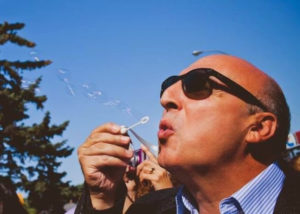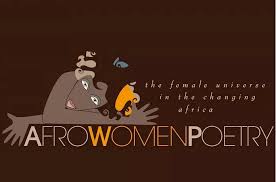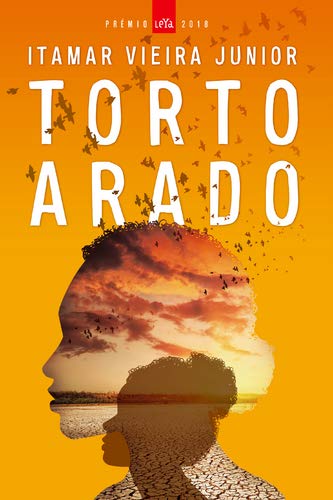I doubt these days there are many poets, writers, teachers, ranch-hands, or gardeners, and anyone in between who think Robert Krotesch is not an important and sophisticated poet nor someone who has made a significant contribution to Canadian letters as a writing mentor, teacher of literature, and booster of Western Canadian culture.
Hell, as all of you know, this conference is dedicated to Krotesch, and if that does suggest you are on the board with the other literary immortals-whoever they are or may be- I don’t know what does.
I am aware in writing this paper I am speaking or singing to the choir, but not too aware or self-conscious; Krotesch would be the first to point out an over abundance of self-consciousness kills good writing.
But, it is Krotesch’s playful awareness of literary tradition, (and his own ironic self awareness) where poetry and culture sit in relation to the over-all hard facts of prairie life in terms of history, geography, labour, climate, in short, the difficult business of farming, how all of this can stack up and sit in opposition to the creating of a literature or poetics that honors rural prairie life and place.
And/ or worse, there are those who see themselves as cosmopolitan and urbane and dismiss the rural voice as unsophisticated and finally there are those who accept or adopt the literary traditions of high culture and view prairie poetry as the expression of a backward hayseed hinterland. Best to ignore a place that is dull and mundane, so the thinking goes, and let us instead consider the big universal themes of love, death, sex, and existence.
But, the wonder is how Krotesch is able to confront these difficulties and attitudes. Seed Catalogue makes absence a presence: ‘How do you grow a poet?’ in such unfertile soil. The question is part of the poetic answer; the complete answer, of course, is the poem Seed Catalogue.
And the wonder of Seed Catalogue is how in answering this question Krotesch incorporates, to name just a few of his images and themes, the cold and blankness of winter, the serendipity and vagaries of farm life and its quirky accidents (falling off a horse), the painful symmetries of family and European history, and his adolescent sexual awakening. In other words, the answer is a hash or stew of anecdote, memory, landscape, desire, and remembered childhood rich in comical incident
But the answer also includes ‘found’ rhymes and jokes, suggestive metaphors, and the skillful positioning of McKenzie seed catalogue plant descriptions to create a panoramic view of prairie life. The answer includes the understanding, as we shall see, that you grow a poet by mixing memory with desire, to paraphrase T.S.Eliot, the poet/priest of high culture and modernism.
“ Start: with an invocation
invoke-
His muse is
His muse/if
memory is
and you have
no memory then
no meditation
no song (shit
we’re up against it)”
What can the poet say if there is nothing to evoke, no memory, or even know what to say? How is a poet supposed to write a poem if there is neither ‘meditation’ nor a written representation (or example) to either react against or for the poet’s rural experience or to suggest how the poet’s experience can be collected and valued in a poem.
The answer is in the next stanza; it is grounded (down to earth?) in a series of remembered comical erotic adolescent scenes filled with typical prairie details and language: ‘a school barn’, ‘Hastings’ slough’ and she was wearing ‘so much underwear’, (after all winter in Western Canada is cold) it was impossible to get close to her and past her ‘CCM skates.’
And you also answer the question ‘How do you grow a poet’ by suggesting the work on the land, the shaping of a field, the defining of boundaries with ‘barbed wire,’ ‘staples,’ ‘claw hammer,’ and ‘fencepost’ all the hammering and shaping parallels the making of a poem. The land a blank page on which Krotesch’s ancestors wrote their poems.
But, Krotesch also is urgent about the need to write what we have not written about; he sees the importance and necessity of (re) imagining the past, ‘the home place,’ and making it real. There is also the importance of knowing where to look for history; in Seed Catalogue the writer Rudy Wiebe is considered a significant guide to where to look for the past.
Uncle Freddie, who did not have enough money to buy a pound of coffee, is an example of using the imagination to create the real.
“ Every morning at breakfast
he drank a cup of hot water
with cream and sugar in it.”
Kroetsch as a young boy finds this curious and asks why.
Uncle Freddie, a gentle man answers, “ Don’t you understand anything?”
Or, don’t you see the importance and power of the imagination in the act of creating, and in this case, imagining ‘real’ coffee. In short, it is necessary for us to imagine the real, oddly, to construct the real.
And at the same time Krotesch understands poetry has limits. Poetry cannot construct a landscape, that is, “break up that space with huge design and, like the fiction of the Russian steppes, build a giant artifact.” Nor can poetry create or be a substitute for friendship and camaraderie between Purdy and Krotesch in the same way, say, a serious round of drinking and reciting poetry can be important to two poets: “ No song can do that” writes Krotesch. Seed Catalogue’s attitude towards itself as a poem and poetry is playful; on the one hand it affirms the need and value of poetry in creating the real, and indirectly identity, and at the same time it challenges the value of poetry and its abilities to transform or reflect experience. The poem, like the poet, plays with itself.
But you may ask what in the world does all this poetic complexity have to do with an Italian-Canadian living in a large urban prairie city.
I am, of course, referring to myself (a slippery concept Krotesch would argue by the way) and I think it is useful to see Seed Catalogue not only as seriocomic long poem about Krotesch search for a way to write about his specific past. Seed Catalogue can also be understood as a kind of aesthetic manifesto; its aesthetic values strive to broaden the net by which we define culture, experience, and ultimately ourselves. The asethetetics of High Culture and modernism tend to be very particular about what is let in as art and even sometimes what it lets out as art. Krotesch’s writing suggests, as we say in Italian, “tutto fa brodo,” “everything makes a soup,” that is, everything can be included in a poem the high, low, and everything in between. Krotesch makes it clear that the culture of the prairies is rich in imagination, character, and incident. The place were you live, the stories of people and places, the voices and jokes, the food you ate, the arguments over money, the weather endured, the lost Old World, language, the relentless beat of spiking down track, your memories, scraps of your parent’s memories, the growing literally of a garden, the smell of crushed grapes in the fall, all of this and more was/is valid.
And this is a very liberating attitude or perspective especially if you are starting out as a writer and believed, like I did, that books were written in places rich in literary tradition like London, New York, or Paris. Writers were sophisticated people who had a gift and power other mere mortals simply did not possess. How they acquired this gift was a mystery. They lived in homes with original art on the wall bought cheap at the beginning of some famous artist’s career and worked in book-lined studies. I imagined their apartments where hardcover books lay causally about on the edges of big soft brown couches. At parties the women were tall and angular with acidic tongues; the men looked rumpled and were intelligent. Whenever someone spoke out fell a profound insight or a bon mot. How could I, from a rural Italian family who came from a small obscure village in Southern Italy to a large urban prairie city, ever hope to become part of the witty, sophisticated, and progressive world of Art and Literature?
My mother worked in a clothing factory sewing zippers onto bulky green winter coats. My father worked as a section man for the railway cleaning snow off switches in the winter and replacing ties and rail in the summer. Indeed, ‘how do you grow a poet?’ It seemed impossible.
But Krotesch’s pointed a way out. It was okay to write about neglected rural Southern Italy life. Hell, poets grow best when neglected.
Seed Catalogue quietly and urgently stated it was also okay (and therefore I was free) to write about and use agricultural themes and images, in my case rural Calabria and the family garden.
And the writing did not have to restrict itself to a maudlin tragic view, a kind of dark Catholicism that characterized early Italian-Canadian literature where characters found themselves cast out of the Eden of their homeland and adrift in the bewildering landscape of a large modern urban city. The clash of generations- between fathers and sons, mothers and daughters- was portrayed in the literature as another bitter layer of disappointment to be endured in a foreign country. Krotesch’s poetry, on the other hand, was full of wit, puns, bits of lyric, history, personal memory, guffaws, roars, and a sly cold eye on the truth and an almost hyper self-awareness.
The voice in Seed Catalogue and the long poem The Sad Phoenician is a clever mix of rural perspective and sophisticated cultural knowledge. The voice in both poems manages to glue together the attitudes and experiences of the rural sly prairie farmer (or ‘contandi’) to the outlook, experience, and book knowledge of the city intellectual. In both poems Krotesch addressed, directly and indirectly, my own conflicts and confusions about the writing life: What to write about? How do I presume to write? Does anyone in the capital care to know about a past rural Southern Italian culture? Working with your arms, hands, and back is real work compared to reading, thinking, and writing is it not?
I was only to hear much later about the successful American writer Philip Roth who quipped in an interview how he was surprised so many people were interested in reading about Jewish-American life.
But, the poems addressed these conflicts and opposites I was trying to reconcile: the rural Calabrian traditions and culture of my parents versus my university education and my acceptance of English speaking Canadian culture. Intellectual work versus physical work, rejected Calabria versus embraced Tuscany, the internationally known art cities of Rome and Florence versus the obscure unknown villages of Cosoleto and Aquarro, the here and now of Canada versus remembered and imagined Southern Italy.
The large lost garden plots of Italy compared to the small garden in the backyard beside the garage.
Krotesch’s response was simple; break away from the long shadow of tradition and start or write your own tradition. Too much reverence for the past creates paralysis in a writer especially at the beginning of his writing career.
So when I finally sat down to write about my agrarian rural Italian family- I agree with Bob on this point, writers are slow learners – this is one of the poems that came out so to speak. It is from the book ‘The Fate of Olives’ although I should add the book is primarily prose and uses poems as a kind of connective tissue to hold the various prose pieces together.

Carmelo Militano is an award winning poet & writer. He won the F.G. Bressani award for poetry in 2004 for his chapbook Ariadne’s Thread. His poetry includes the collections Morning After You and The Stone Mason’s Notebook. Militano’s novel Sebastiano’s Vinewas short-listed for the Margaret Laurence fiction prize and his non-fiction work The Fate of Olives was also short-listed. His reviews, essays, and literary interviews have appeared in journals across Canada. Militano currently hosts and produces the P.I. New Poetry show, CKUW 95.9 FM, University of Winnipeg. Lost Aria is his fifth book.
Cover image: Photo by Melina Piccolo,




















































